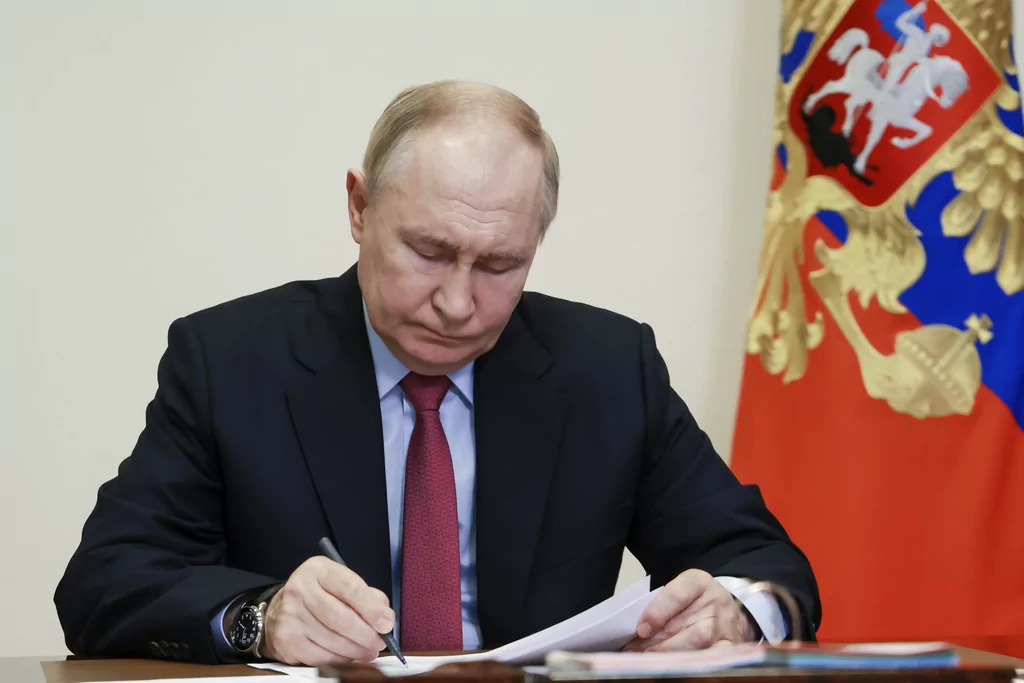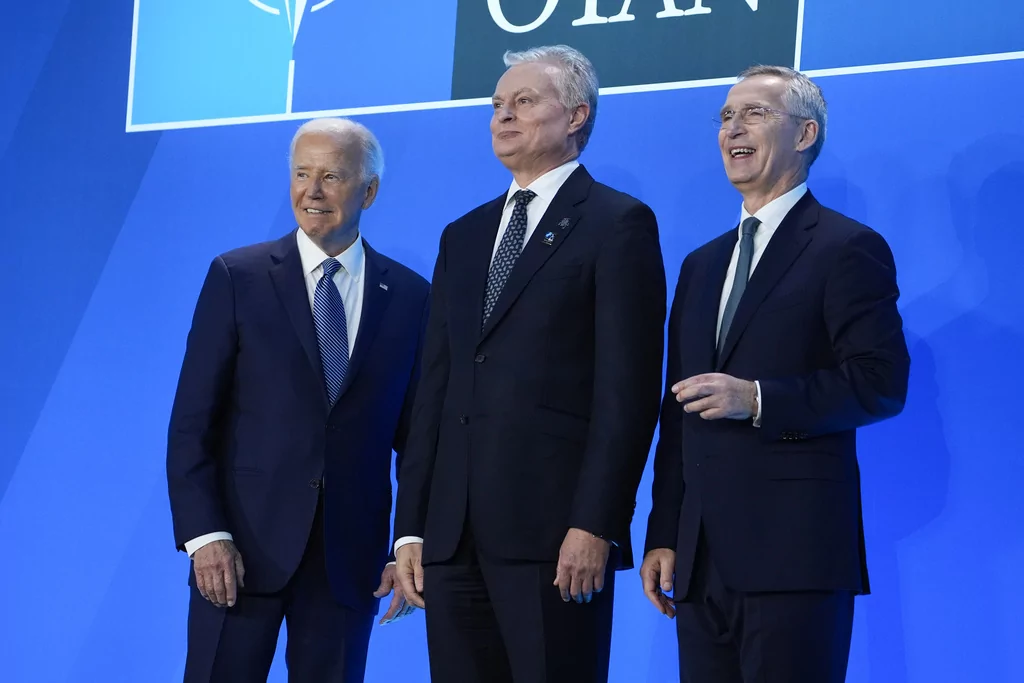
Russian President Vladimir Putin is orchestrating “terrorist attacks” against NATO countries, according to a pair of allied foreign ministers, citing a spate of arson incidents and other violence.
“It’s quite clear[ly] a terrorist attack sponsored by a hostile neighboring country against one of the NATO, NATO countries,” Lithuanian Foreign Minister Gabrielius Landsbergis said Wednesday on the sidelines of the NATO leaders summit in Washington, D.C. “The problem is, at this stage, that when you’re saying this, you immediately have to say what you’re going to do about it. … I’d like to remind that the only time that Article 5 was invoked was because of a terrorist attack.”

Landsbergis offered that assessment in reference to a series of recent arson incidents in Poland and Lithuania, two NATO members that share a border long regarded as one of the most vulnerable places in the alliance. Likewise, an aide to the late opposition leader Alexei Navalny was attacked by a hammer-wielding assailant in March.

“I’m not sure whether you know — it can be called just hybrid events or gray zone event any longer,” Landsbergis said, referring to the way Western leaders typically categorize such unconventional operations by Russia.
Polish Foreign Minister Radoslaw Sikorski agreed that Russia’s recent operations qualify as terrorist attacks against NATO.
“It’s not just arson,” Sikorski said. “They are sending death squads that kill people. That’s definitely terrorism.”
The transatlantic alliance is expected to agree to a “national mechanism to bring military and civilian planning together,” a senior NATO official told reporters this week, to manage these “hybrid attacks.”
Landsbergis, who said he is “happy” that the allies are addressing the problem in a formal way, argued that a failure to punish such operations would invite Putin to engage in more overt forms of aggression.
“Putin will escalate because every time we keep silent, he takes it as a weakness and pushes forward,” he said.
CLICK HERE TO READ MORE FROM THE WASHINGTON EXAMINER
For the Lithuanian leader, there is an obvious way to retaliate without stumbling into a direct conflict with Russia: giving a green light to Ukrainian forces, which are largely restricted from using Western weapons inside Russia.
“Now we have a country that’s willing to manage escalation for us,” he said. “They’re actually asking here in Washington today, allow us to strike deeper into Russian territory, ‘We will manage your escalation for you.’ … If they [feel free] to attack us in any way that they think of, then let’s allow the Ukrainians to attack them.”






